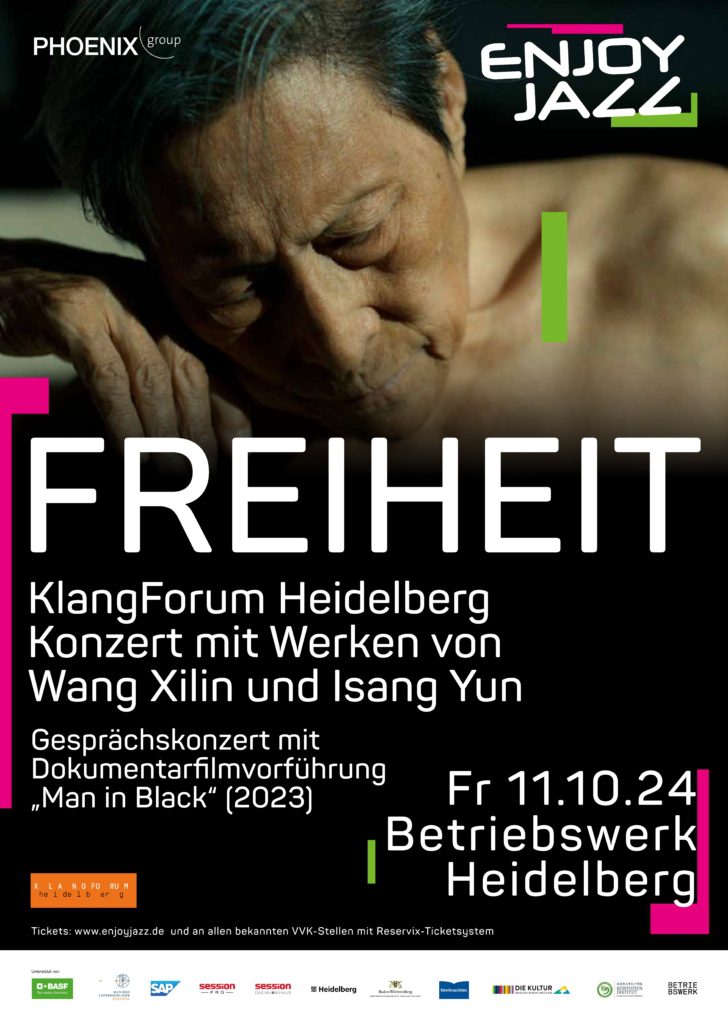THEATER AUS CHINA IN HEIDELBERG: EIN WERKSTATTGESPRÄCH
Worum es ging: Im Vorfeld des “Heidelberger Stückemarkts mit Gastland China” (25. April – 4. Mai 2025) näherten wir uns dem zeitgenössischen Theater in China aus verschiedenen Perspektiven.
Neben einem Überblick über die Theaterszene in der sinophonen Welt und ihre Ursprünge wurden das Gastspiel-Programm des Stückemarkts und die zum Wettbewerb eingeladenen Stücke vorgestellt. Mit einigen der Übersetzer:innen diskutierten wir die Besonderheiten von Übersetzung fürs und im Theater. Den Abschluss bildete eine Lecture Performance aus dem Dokumentar-Roman Großer Fluss, Große See – Unerzählte Geschichten von 1949 大江大海 – 一九四九 von Lung Ying-Tai, den die in Berlin ansässige Regisseurin Cao Kefei für das CAPAS Heidelberg, gemeinsam mit der Künstlerin Yi-Jou Chuang aus Taiwan, präsentierte.
18.00 Begrüßung & Kurzeinführung:
“(Musik-)Theater in China: Ein Blick aus der Geschichte”
Barbara Mittler, Sinologie, CATS Universität Heidelberg
18.15 Vortrag & Diskussion:
“Kommerz, Propaganda, Kritik: Was ist los auf chinesischen Bühnen?”
Stefan Christ, Sinologie, Universität Erlangen-Nürnberg
19.15 Präsentation & Fragerunde:
“Theater aus China in Heidelberg: Zur Auswahl der eingeladenen Gastspiele, Stücke und Theatermacher:innen”
Jürgen Popig / Dramaturg Theater Heidelberg; Ulrike Syha / Kuratorische Beraterin Gastland China
19.45 Podium & Diskussion:
“Chinesisches Theater für ein deutsches Publikum oder: Wie man dramatisch übersetzt” Sara Landa, Yip Suk Man, Lennart Riedel
20.30 Lecture Performance & Fragerunde:
“Vom Dokumentar-Roman auf die Bühne: Großer Fluss, Große See – Unerzählte Geschichten von 1949 大江大海 – 一九四九 von Lung Ying-Tai”
Cao Kefei / Regisseurin, Yi-Jou Chuang / interdisziplinäre Künstlerin,
Moderation: Barbara Mittler
Die Teilnehmenden:
CAO Kefei
Cao studierte Germanistik und Theaterwissenschaft in Shanghai und Bern, arbeitet seit den späten 1990er Jahren hauptsächlich als Theaterregisseurin und Autorin in China und im deutschsprachigen Raum. Sie ist Mitgründerin des Künstler:innen – Kollektivs Nomadic Minutes, das 2025 das Dokumentartheater To Mom, I want to … in Berlin und Shanghai uraufführt. Seit 2007 hat Cao eine Reihe von dokumentarischen Aufführungen, interaktiven Performances und Kurzfilmen zu den Themen über chinesische Geschichte und Gesellschaft, den Zustand der Frauen und transkulturelle Erfahrungen realisiert. Ihre Arbeiten wurden bei den Festivals und Ausstellungen wie Little Asia in Tokyo und Taiwan, Umweg über China in Berlin, Neue Dramatik: China in Düsseldorf, Culturescapes in Basel und im Zentrum für Zeitgenössische Kunst Berlin präsentiert. Cao war Gastprofessorin am Institut für Angewandte Theaterwissenschaft an der Universität Gießen und ist Co-Autorin und -Herausgeberin des Buchs Zeitgenössisches Theater in China (Alexander Verlag). 2025 – 2026 ist sie Artist-in-Residence von CAPAS für das Theaterprojekt Großer Fluss – Große See.
Stefan CHRIST
Stefan Christ (geb. 1986) hat Philosophie und Sinologie in Berlin, Hamburg, Beijing und Nanjing studiert. Für seine Arbeit Geschichte, Politik und Gesellschaft im Mogu des Wei Yuan (1794 – 1857) erhielt er 2022 den Karl H. Ditze-Preis für herausragende Dissertationen in den Geisteswissenschaften. Er hat zahlreiche chinesische Theaterstücke übersetzt (siehe u.a.: Mittendrin – Neue Theaterstücke aus China, Theater der Zeit 2015) und bei vielen Gastspielen chinesischer Theaterkünstler – darunter Lin Zhaohua, Meng Jinghui, Tian Gebing und Yu Rongjun – in Deutschland übertitelt. Für seine Übersetzungsarbeit wurde er 2019 mit dem Special Book Award of China auf der Pekinger Buchmesse ausgezeichnet. Zudem hat er an den Publikationen Regiekunst heute – Stimmen und Positionen aus China (Alexander Verlag 2018) und dem Routledge Companion to Performance-Related Concepts in Non-European Languages (Routledge 2024) mitgewirkt. Derzeit ist er wissenschaftlicher Mitarbeiter an der Friedrich-Alexander-Universität Erlangen-Nürnberg und arbeitet an einem Buch zum zeitgenössischen historischen Drama in China.
Yi-Jou CHUANG
Geboren in Taipei, Taiwan, schloss sie 2011 ihr Studium der Malerei an der National Taipei University of Arts ab und erhielt 2020 ihren Master für Bühnenbild an der Hochschule für Bildende Künste Hamburg. Sie arbeitet mit verschiedenen Performance-Künstler:innen in Deutschland zusammen und entwirft Räume für zeitgenössischen Tanz, experimentelles Theater und immersive Formate. Ihre Arbeiten umfassen Bühnenbild, Videokunst, Performance Kunst und Rauminstallationen. In ihrer künstlerischen Praxis setzt sich Chuang mit Themen wie Identität, postkoloniale Körperforschung und sozial engagierter Kunst auseinander. Ein zentrales Anliegen ist es ihr, interaktive Erlebnisse für Publikum zu gestalten. 2024 zeigte sie im Bucerius Kunst Forum in Hamburg ihre Rauminstallation Insel der Illusionen, in der sie sich mit familiärer Identität und deren Fragilität auseinandersetzte. Im Mai 2025 ist ihr Bühnenbild für das Stück Lotus Fight Club von Raymund Liew Jin Pin auf Kampnagel in Hamburg zu sehen. Ebenfalls im Oktober präsentiert sie ihre interaktive Installation YAWUPO – you are what you post im Museum of Contemporary Art, Taipei.
Sara LANDA
Sara Landa studierte u.a. Germanistik und Sinologie in Freiburg und Beijing und forscht zu literarischer Übersetzung, Transkulturalität und literarischem Ecocriticism. Ihre Forschung ist vielfach mit Preisen ausgezeichnet worden. Derzeit ist sie wissenschaftliche Mitarbeiterin im Projekt „Epochale Lebenswelten—Krisennarrative“, dem Heidelberger Teilprojekt des BMBF-Verbundkollegs Worldmaking: A Dialogue with China. Daneben ist sie selbst als Literaturübersetzerin von chinesischer Literatur des 20. und 21. Jahrhunderts tätig.
Barbara MITTLER
Barbara Mittler studierte in Oxford und Heidelberg Sinologie, Musikwissenschaft und Japanisch. Seit 2004 ist sie Professorin für Sinologie in Heidelberg, wo sie das Exzellenzcluster “Asia and Europe in a Global Context” (ab 2007) und darauf aufbauend das Centrum für Asienwissenschaften und Transkulturelle Studien (CATS, eröffnet 2019) mitbegründete. In ihren Forschungsarbeiten geht es um die Fragen von Kulturpolitik in China, Hong Kong und Taiwan. Sie leitet gegenwärtig zwei größere Projekte, die China-Kompetenz und den Dialog mit der sinophonen Welt befördern sollen: die China-Schul-Akademie und den Heidelberger Teil des BMBF-Verbundkollegs Worldmaking—A Dialogue with China: Epochale Lebenswelten, das Krisennarrative untersucht.
Jürgen POPIG
Jürgen Popig war als Dramaturg in Singen, Freiburg, Stuttgart und Osnabrück engagiert. Mit der Spielzeit 2011/12 wechselte er als Leitender Schauspieldramaturg an’s Theater und Orchester Heidelberg und ist künstlerischer Leiter des Heidelberger Stückemarkts. Daneben arbeitet er als Autor und Übersetzer von Theaterstücken.
Lennart RIEDEL
Lennart Riedel studierte Sinologie in Heidelberg, Oxford und Peking. Momentan ist er als Wissenschaftlicher Mitarbeiter am Lehrstuhl für chinesische Kultur tätig, wo er zur literarischen Zensur in der Volksrepublik China promoviert. In Lehre und Forschung beschäftigt er sich mit dem Zusammenspiel von chinesischem Recht, chinesischer Literatur und politischer Ideologie. Daneben unterrichtet er Kurse zur Übersetzung verschiedener Textsorten vom Chinesischen ins Deutsche und übersetzt unter anderem für das Pressebüro der Volksrepublik China.
Ulrike SYHA
Ulrike Syha wurde 1976 in Wiesbaden geboren. Nach einem Studium der Dramaturgie in Leipzig und einer längeren Assistenz-Zeit am Schauspiel Leipzig lebt sie heute als freie Autorin und Übersetzerin von englischsprachiger Dramatik (Martin Crimp, Wallace Shawn, Pat To Yan, Alice Birch u.a.) in Hamburg. Sie war Hausautorin am Nationaltheater Mannheim (2009 / 2010) und Writer-in-Residence in Nanjing (China), Vilnius (Litauen), Novo Mesto (Slowenien) und anderen Städten. Ihre Stücke wurden zwei Mal zu den Mülheimer Dramatiker-Tagen eingeladen. 2018 erhielt Ulrike Syha für ihr Stück Drift den Autor:innenpreis des Heidelberger Stückemarkts, 2019 einen der Hamburger Literaturpreise für ihr Stück Der öffentliche Raum und 2023 für ihr Stück Der analoge Mensch. 2020 war sie Fellow am Hanse-Wissenschaftskolleg Delmenhorst. 2025 erhielt sie ein Aufenthaltsstipendium im Künstlerhaus Edenkoben. Ihre Stücke und Übersetzungen werden vertreten vom Rowohlt Theater Verlag, Hamburg.
YIP Suk Man
Suk Man Yip hat in Hongkong Fine Arts und Humanities mit Schwerpunkt Literatur sowie Sinologie in Göttingen studiert. Seit 2021 ist sie Doktorandin im Fach Sinologie an der Universität Heidelberg und wird von Prof. Dr. Barbara Mittler betreut. In ihrer Doktorarbeit untersucht sie Medienstrategien der Kommunistischen Partei Chinas in der britischen Kolonie Hongkong während des Kalten Kriegs sowie die Rolle staatlicher Zeitungen bei Ereignissen wie den Unruhen von 1966 und 1967.
Kooperationspartner:
Theater der Stadt Heidelberg, Konfuzius-Institut an der Universität Heidelberg e.V.
CATS Universität Heidelberg, Worldmaking—A Dialogue with China,
CAPAS Käte Hamburger Kolleg/Centrum für Apolalyptische und Postapokalyptische Studien



























